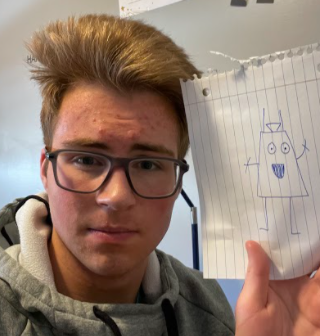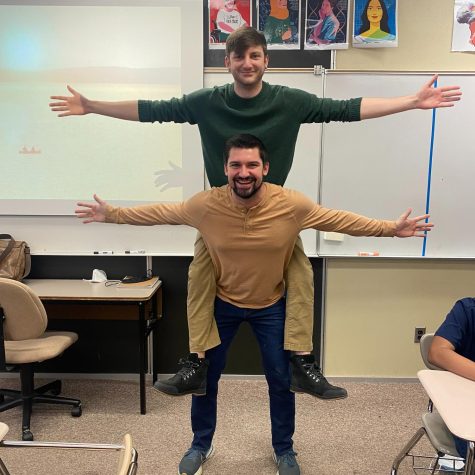Homeschooling Boom!
January 26, 2021
It’s no surprise that schools have been sent through a loop this school year and this has caused many to look to the different methods of schooling.
Julie Johnson the Legislative Liaison for the Minnesota Association of Christian Home Educators (MACHE), said that “In general, MACHE received an increase in calls and emails from parents, to a point that we started a new FaceBook page just for new homeschool families looking for information…” Also, that MACHE is specifically geared toward Christian homeschoolers, and from what she can tell secular homeschool associations also saw a growth in homeschool communities.
She was unable to give numbers because her sources are currently not available to the public but she directed me to the National Home Education Research Institute (NHERI). Brian D. Rey, Ph.D. in an article published August 21, 2020, said that “I have been telling the media that my conservative estimate is that there will be a 10% growth in the absolute number of homeschool students during 2020-2021 school year.”
In the same article, “A mid-May nationwide poll found that 41% of parents said they were more likely to enroll their child in a homeschool, neighborhood homeschool co-op, or virtual school once the [Covid-19] lockdowns are over (American Federation for Children, 2020). About a week later, another national survey found that 59% of parents “… would likely pursue at-home learning such [sic] online school or homeschooling, with 30% saying they would be very likely to do so” (IPSOS, 2020).
Additionally, A specific case reported in an article published July 7, 2020, by Martin Bürger says that “The increasing willingness of parents in North Carolina to homeschool has led to the online system for filing a Notice of Intent to Establish a Home School being temporarily overwhelmed.” Further that “The system is not currently available due to an overwhelming submission of Notices Of Intent (NOI).”
Chris, the Director of a local homeschool community run by Classical Conversations (C.C.), said that he has seen “peaked interest in homeschooling during the summer but not a large increase of people joining in the fall.” Although the numbers seem consistent the community did have 2 families drop out of the program due to covid related concerns.
The community meets in-person weekly and due to this, they have had to change some of their policies. Previously, C.C. required parents to stay with their child(ren) during the lunch period but the local community no longer requires parents to stay, in hopes to decrease the number of people gathering.
In addition to this, they have minimized group field trips and regulated a mask policy.
It was mentioned that the families who contacted Chris, were mostly younger and that some of them would not have homeschooled except for circumstances surrounding covid.
Chris has homeschooled kids through C.C. for the past 7 years and he said “I plan to continue with homeschool but I’m always open to other options, especially as my kids are reaching high school and college.” He and his wife were not homeschooled growing up but their main reasons for homeschooling were, a lack of Christian morals and worldview taught in public schools, and they believe that their children’s education is their responsibility as parents.
Their reasons were similar to a majority of homeschool parents who reported their reason for homeschooling. The chart below is showing the percentage of homeschool parents’ most important reasons to homeschool: 2016
The image is taken from the article: School Choice in the United States: 2019 https://nces.ed.gov/programs/schoolchoice/ind_05
SOURCE: U.S. Department of Education, National Center for Education Statistics, Parent and Family Involvement in Education Survey of the National Household Education Surveys Program (PFI-NHES:2016). See Digest of Education Statistics 2018, table 206.15.
Some of these reasons along with covid concerns are what lead Holly, a mom of three, to homeschool this school year (2020-2021). Holly and her husband had been discussing homeschooling in the summer of 2020. Her husband is a public school teacher so he saw first hand how distance learning was affecting kids, not wanting the instability that was available at the time, they decided to homeschool their kids.
The district that they live in did not have a stable plan for the 2020-2021 school year and this was a major factor in why they decided to homeschool. Previously, their children had been in both public and charter schools and they were generally pleased with their experiences.
After consulting some friends and feeling less overwhelmed, they used the curriculum from My Fathers World to teach their kids. Holly said that homeschooling was “eye-opening” and that she and her kids like it. One of the things that they like is the flexibility of it, “…if the kids want to get stuff done right away in the morning they can, or if they want to take a slower day, we can do that.”
When asked if they would continue homeschooling she said that they would for at least the next year, but beyond that, they don’t have plans.
Similarly, Casey, a mom of two, started homeschooling this year. In contrast to Holly, Casey said “I would have never ever homeschooled my kids, ever.” The only reason she homeschooled this year was because she was not happy with the way her Centennial district was handling distance learning.
In the spring of 2020 she got a taste of having the boys with her at home doing school and because of that she could consider homeschooling. The district had not decided what it was going to do for the 2020-2021 school year and it “didn’t sit right” with Casey to put her boys through the instability of it.
Previously, the experience with the boys’ public school was good and homeschooling was not on the radar. She talked to her husband and some friends to try and decide how to proceed in homeschool. The curriculum that was decided upon was the Charlotte Manson approach along with My Fathers World curriculum.
Casey brings her boys to Loft & Field every other Friday so that the boys can take classes in person and to compliment the classes that Casey said “were not my strong suit.” Loft & Field is based on the Charlotte Manson Philosophy. You can check out more about them at loftandfield.com
It was important to Casey to keep her boys’ friendships and social interaction so she has made sure to keep in touch with their friends. It is likely that the boys would not have seen their friends any more often staying in the public school system because of the approach the district made this school year.
While the first semester of homeschool was a learning curve the rest of the year they were able to “smooth out the wrinkles” in their curriculum and schedule. Casey said that she likes to know how and what her boys learn and even when the boys were in public school she was an indirect presence.
Casey likes the more direct presence she can have with homeschooling her boys in both the curriculum and religious aspects. She was glad for the opportunity to try homeschooling and she said ” I am confident that I will continue with the My Fathers World curriculum with my boys.”
Resources and websites sourced:
https://www.lifesitenews.com/news/explosion-of-parents-wanting-to-homeschool-crashes-north-carolina-govt-website
National Poll: 40% of Families More Likely to Homeschool After Lockdowns End
https://nces.ed.gov/programs/schoolchoice/ind_05.asp













